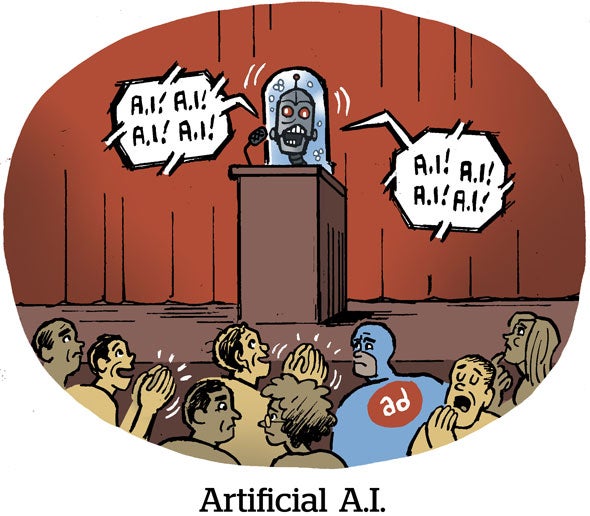Here’s today’s AdExchanger.com news round-up… Want it by email? Sign up here.
Reddit In The Black
Reddit is experiencing a surge in new advertiser demand, Ad Age reports.
Reddit’s prominence as a training ground for AI models – Google’s generative search engine in particular – means it’s an important place for brands to contribute to the conversation, so to speak. Google’s AI models view commentary on Reddit as more reliably authentic and trustworthy.
This can backfire, of course.
Last month, Lars Lofgren documented how shady Microsoft key resellers – a key is the code used to activate and verify a Microsoft product, like Windows or Office – staged automated conversations on Reddit to mislead Google’s AI Overviews into promoting their scam.
New York Magazine’s John Herrman writes that Reddit moderators are struggling under the deluge of AI-generated content. Bot operators themselves use LLMs that learned from Reddit data, Herrman notes, so their automated Reddit accounts are especially hard to spot.
But Reddit is doing what it can to make its platform appealing to advertisers, including brand categories most affected by certain Meta policy changes. Health and wellness brands, for example, are now strictly prohibited from targeting and attributing audiences on Meta based on conversion events.
Two of the fastest-growing advertisers on Reddit are pharma giant Eli Lilly and DTC telehealth company Hims & Hers.
Small Stacks
News writers know that their own byline matters far less than the name of the publication they write for.
Even a star reporter or columnist was beholden to The New York Times or Wall Street Journal in a way that star performers in other fields were not. Access and prominence was tied to the news company, not the individual, and most readers wouldn’t subscribe just to follow a specific writer.
Nowadays, though, the independent journalist route makes sense for many well-known news reporters. One interesting example is Dave Jorgenson, who for years led The Washington Post’s social media production and became synonymous with WaPo for many followers on TikTok and YouTube, The New York Times reports.
Now, Jorgenson is leaving the Post to start his own online news video production company off the back of his own personal YouTube account.
It’s a tough loss for The Washington Post, but also a risky step for Jorgenson.
Substack CEO Chris Best disclosed at an event hosted by The Information last month that “more than 50” people earn $1 million per year on its platform. The typical Substacker makes way, way (way) less than that.
Lights, Camera, Action Plan
On Wednesday, President Trump released his AI Action Plan, a 23-page document detailing how he intends to develop and regulate the use of AI in the US.
Well, more like deregulate. The plan is to review all Federal Trade Commission (FTC) investigations that started under the Biden administration and eliminate “red tape and onerous regulation.”
The document states that “AI is far too important to smother in bureaucracy at this early stage.”
The plan may be good news for “large cloud providers and tech firms like Google, Amazon, Microsoft and Meta,” The Information writes. Many of these platforms are currently being sued by the FTC or the Department of Justice.
The plan also supports the development of open-source AI models, which are free of cost for anyone to use.
What those models will look like remains to be seen, but one thing is clear: They won’t be “woke,” as per an executive order that was also signed on Wednesday.
But Wait! There’s More
Google deleted hundreds of fraudulent apps from the Play Store that had been serving out-of-context ads (and malware!) to users. [Forbes]
Meanwhile, in other Google news, the company will officially deprecate all of its shortened URL links (i.e., “http://goo.gl”) next month. [The Verge]
Retailers increasingly allow customers to keep unwanted items and still get a refund. Here’s why. [WSJ]
VideoAmp and Warner Bros. Discovery signed a multiyear deal to expand their measurement partnership. [release]
IPO and M&A activity are back on the rise, according to asset management firm Blackstone. [Business Insider]
You’re Hired!
Albertsons appoints Brian Monahan as the new head of its Albertsons Media Collective. [release]















